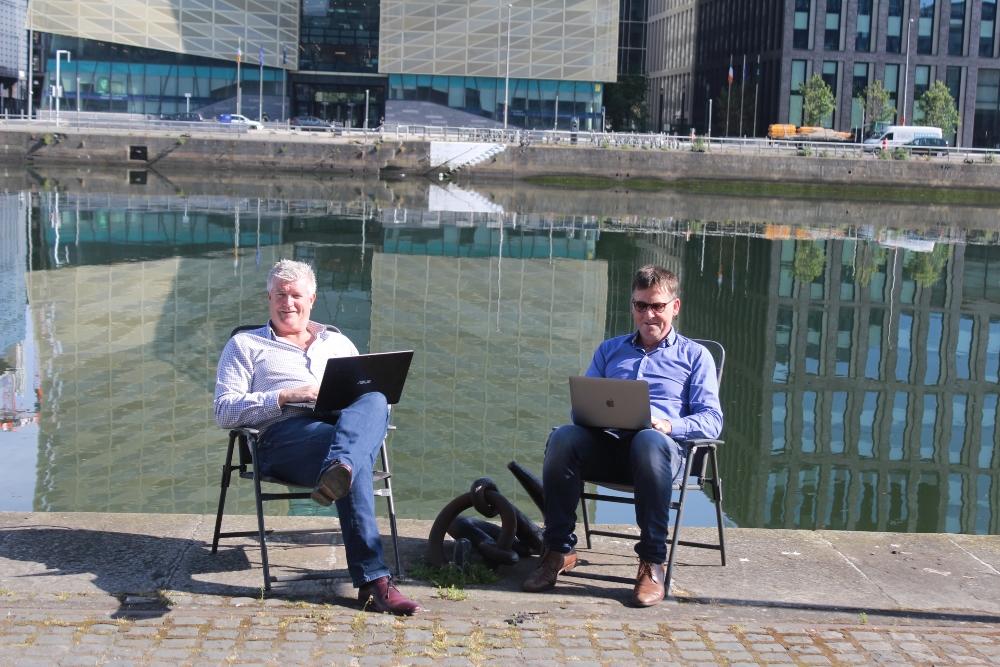Supply chain pressures linked to Customs and post-Brexit paperwork is hurting shop shelves North and South and this could be an opportunity for supermarkets in the Republic, explains Bank of Ireland’s head of Retail Sector Owen Clifford.
The post-Brexit retail landscape could present Irish supermarkets with opportunities online, across the island of Ireland and across Europe.
The post-Brexit impact of the Trade and Co-operation Agreement (TCA) between the EU and UK agreed in late December 2020 on the retail sector is evolving/gaining traction in recent days, Clifford explained.
“The initial concerns in respect of supply chain pressure linked to Customs requirements has manifested itself linked primarily to the level of increased paperwork and oversight required. The UK retail industry has sought changes to the position already in correspondence with the UK Government outlining that additional friction in the supply-chain is leading to increased costs for their businesses,” Clifford said.
“Will we see an expansion into the Republic of Ireland or more likely a retraction from the market from these retailers? This may present an opportunity for Republic of Ireland-based supermarkets to increase their market share in NI in the medium term”
The bottom line is that some shop shelves in UK-headquartered supermarkets in the Republic and Northern Ireland have become empty.
A report in The Irish Times pointed out how UK businesses are now asking some customers in the Republic and Northern Ireland to foot the bill for extra paperwork while a report in the Irish Independent cited Customs officials claiming companies’ poor paperwork for logjams.
Rule of Origin requirements
Meanwhile Clifford’s colleague Roisin O’Shea, head of Food and Drink Sector at Bank of Ireland has described the TCA as the single biggest change to trading conditions on the island of Ireland since the Republic joined the European Union, but also an export opportunity for food and drink businesses.
“The Irish retail sector has taken a proactive approach to Brexit and is well positioned to meet Irish consumers requirements in a post-Brexit environment”

Owen Clifford, head of Retail Convenience sector, Bank of Ireland
Clifford explained: “The Rule of Origin requirements that determine whether tariffs are levied or not are complex and are having a particular impact on UK based central hubs importing into the Irish market (even when goods have been sourced from the EU into the UK and are returning to the EU – if little or no processing occurs whilst in the UK – tariffs need to be applied).
“As Steve Rowe, chief executive for Marks & Spencer’s stated: ‘Tariff free does not feel like tariff free when you read the fine print.’
“This is having a particular impact on the stocking of Irish branches of UK retailers in both the Republic of Ireland and Northern Ireland. Images of depleted shelves in Marks & Spencer’s in the Republic and Asda in the North have been circulating on social media in recent days. Sainsbury’s have circumvented the issue by entering a trade agreement with the Henderson Group in Northern Ireland which has resulted in the unusual sight of Spar branded products appearing within Sainsbury outlets.”
Brexit logjams present an opportunity for Irish retailers
Clifford said that the long-term sustainability of UK supermarket retailers having a stand-alone presence in Northern Ireland is now a moot point.
“There is also an opportunity to capture increased market share in the wider EU – developing supply and supplier agreements through a wider geographic lens may prove beneficial to Irish retailers in the long-run”
“Will we see an expansion into the Republic of Ireland or more likely a retraction from the market from these retailers? This may present an opportunity for Republic of Ireland-based supermarkets to increase their market share in NI in the medium term.”
Clifford pointed out that a number of fashion retailers service their Irish stores via a centralised UK hub. “Many are now realising that this may be unsustainable in the long-term linked to paper-work and tariff costs – utilising an alternative EU based hub is an option for some but will lead to longer lead times for delivery and will require a re-alignment of the supply-chain structure. Many are unpicking the fine-print of the TCA at present to establish the most efficient and cost-effective long-term strategy to pursue.”
According to Clifford, this uncertainty marks an opportunity for Irish retailers to re-engage with customers affected by increased costs/delayed delivery/depleted offerings within UK retailers stores based in Ireland.
“There is also an opportunity to onshore more online business in Ireland – items purchased from UK retailers may now include increased costs linked to VAT, Customs, a more complex supply-chain – Irish retailers need to present a ‘value’ proposition to the market-place that allows them to displace their UK competitors in this regard. There is also an opportunity to capture increased market share in the wider EU – developing supply and supplier agreements through a wider geographic lens may prove beneficial to Irish retailers in the long-run.
“It is indeed early days post Brexit but the ramifications of same will be noteworthy for both retailers and consumers as the reality of same presents itself in the upcoming months. The Irish retail sector has taken a proactive approach to Brexit and is well positioned to meet Irish consumers requirements in a post Brexit environment.
“Given the disruption caused by Covid-19 restrictions at present – this opportunity is presenting some light to our resilient Irish retail community,” Clifford surmised.
By John Kennedy (john.kennedy3@boi.com)
Published: 13 January 2021






